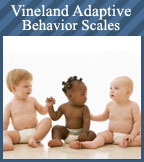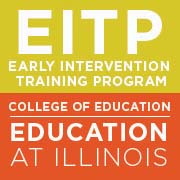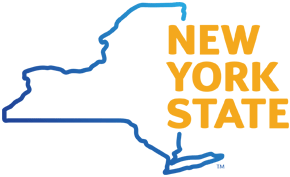The Vineland Adaptive Behavior Scale Primer in Early Intervention and Pre-School
The Vineland Adaptive Behavior Scale is a developmental norm-referenced assessment tool for a variety of functional and educational uses, including child assessment, evaluation, student academic placement, Individual Educational Plans (IEP’s), Individual Family Service Plans (IFSP’s), instructional planning, and to determine eligibility for early intervention and pre-school programs. Our on-line course will assist you and help ‘fast-track’ your learning curve, so that you will more easily learn about this valuable instrument and how best to apply it to the children under your care. Similar to a Monarch or Cliff notes-type review, our online course and certification provides the essential information in a condensed and more easily digestible format.
The Vineland, administered over the course of 25-40 minutes, makes it easy for educators to assess the social-emotional domain of infants, toddlers, and children up to 6 years of age. In addition, the Vineland helps:
· Diagnose delays, disabilities, giftedness and other exceptionalities
· Determine present level of performance
· Write IFSP’s & IEP’s and monitor progress
· Yield standard scores, percentile ranks, and age equivalents
· Support alternate assessment needs
Course intent: To provide social workers, psychologists and special educators with a focused understanding of the Vineland assessment instrument that both fast-tracks their ability to process and assimilate their understand of this imperative analysis of the social emotional delays for infant or toddler, while testing their understanding prior to its application in the clinical setting.
Relevance to early intervention: Psychologists as well as social workers & special educators in the early intervention setting are on the front line of treating children’s social-emotional domains. The Vineland is an invaluable norm-referenced evaluation instrument critical to any initial evaluation, and serves as a baseline for improvement in all other subsequent evaluations to document progress. Applicable in the visiting the home in the early intervention setting, facility based setting, or pre-school settings, this short and helpful course will assist the early intervention provider to navigate through the maze of material offered with the classical edition of the course.
Outcomes:
Provider will be able to: identify deficits in the social emotional domains for both the clinical and educational settings so as to set future goals and outcomes for the child in the early intervention and pre-school setting
Provider will be able to: Identify dysfunction reflecting delay in reflecting social-emotional dysfucntion so as to determine short and long term goals for both individual family service plans (IFSP’s) in the early intervention setting, and individual educational plans within the pre-school setting
Provider will be able to: Identify and diagnose delays, disabilities, or other exceptionalities
Provider will be able to: Identify level of performance in the social-emotional developmental domain
Provider will be able to: Identify standard scores, percentile rankings, and age equivalent mathematical data to accurately document level of dysfunction, and improvement over time
Provider will be able to: Utilize this norm-referenced assessment instrument to identify indices that can assist in recommended academic placement, instructional planning, and both initial and ongoing eligibility




